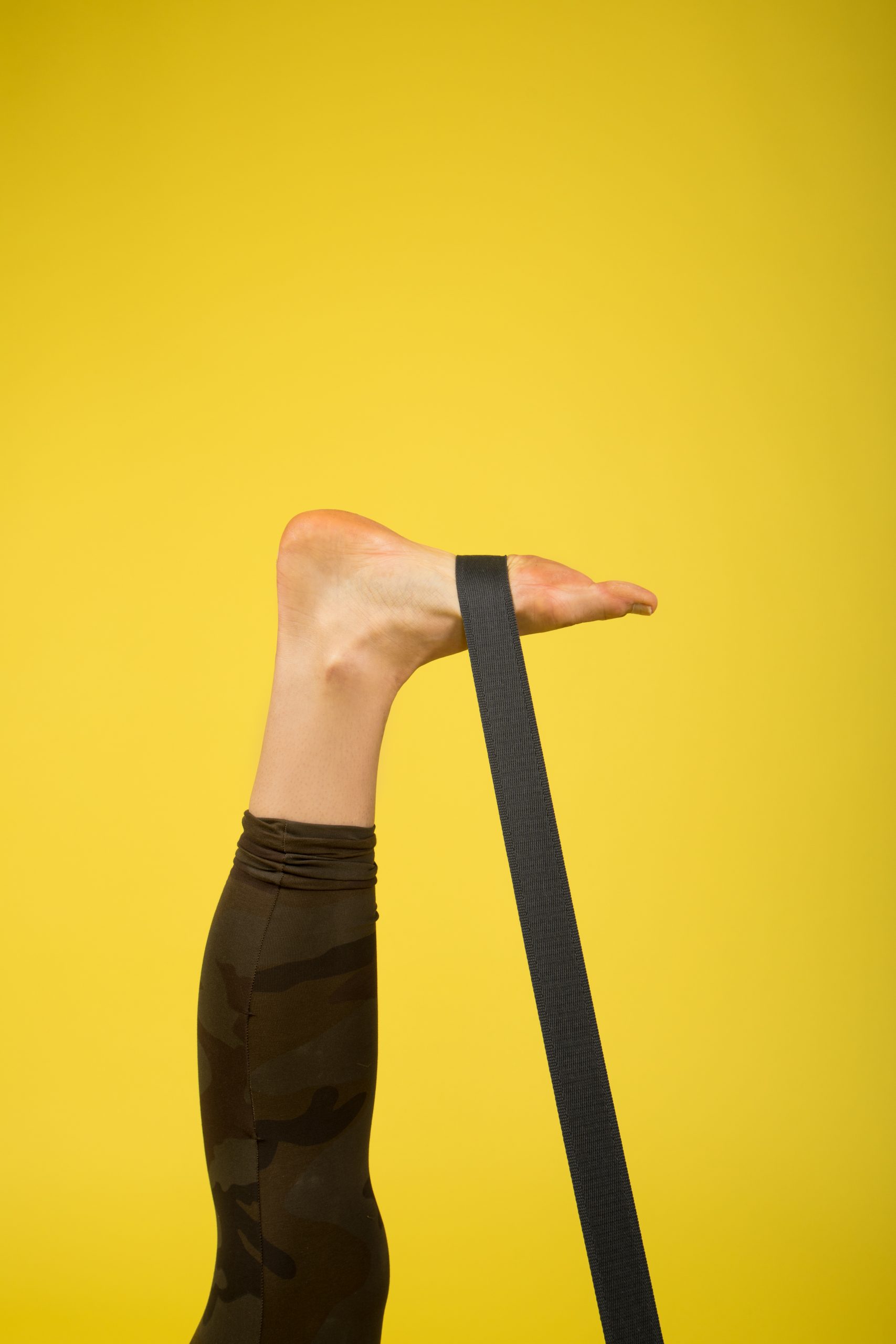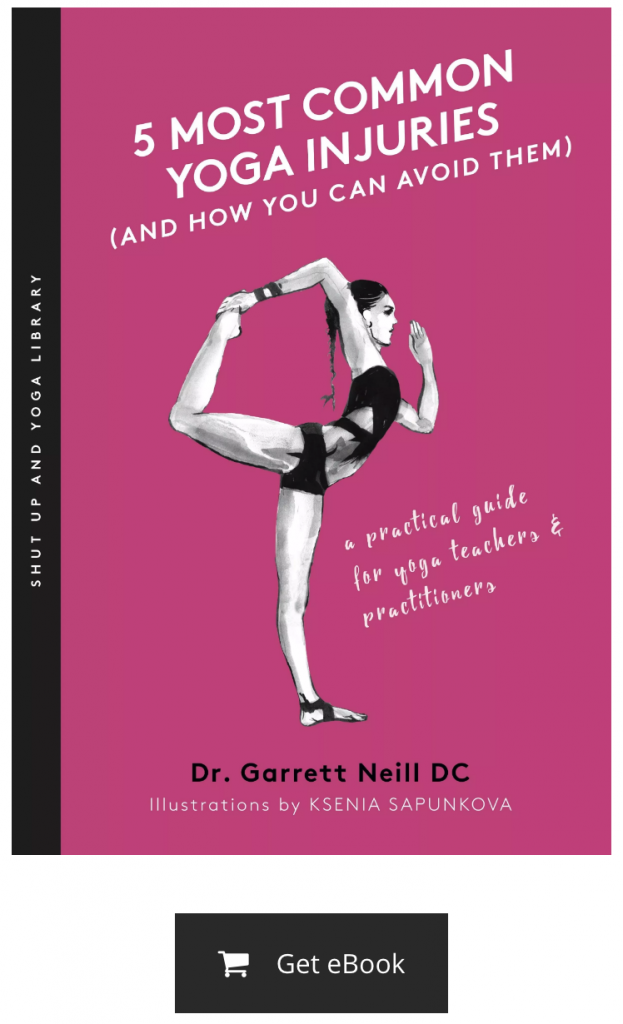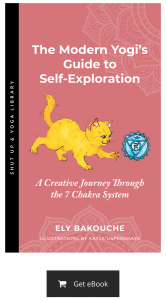It’s All Crap: Disillusionment and Existential Burnout
My Story: Turns Out It Was All Bullshit
It’s hard to acknowledge the limitations and errors of our modern yoga world without getting cynical about it. I know a lot of people who have quit teaching temporarily and permanently when they got to this stage of the game. Others, understandably, jump ship and move on to something else to meet their movement and/or spiritual needs. And then there are those of us who get stuck there because we don’t know where else to go. We get hard on yoga, hard on others, and hard on ourselves.
Disillusionment hit me hard in 2015. My malcontent started with not being able to bend over for two years because my hamstrings were so wrecked and ended with realizing just how much of my meagre teaching income had gone towards health cleanses that hadn’t done a damn thing. I had tried each and every misinformed method I could find for being a “good” yogi and yet I continued to feel like a disgruntled failure. I’d paid through the nose for training after training as sensibilities and trends continuously shifted and none had brought me the lucidity they promised. I was broke, I was tired, and I was burnt-out. It was a chore to not roll my eyes at anything related to yoga.
I think my crowning moment as a disillusioned teacher was while I was subbing a led Ashtanga Yoga class because I needed the money. I spent the whole class rolling my eyes over all the seated forward bends (which I blamed for the miserable state of my hamstrings) and telling off Pattabhi Jois in my head for inappropriately touching his female students while adjusting them. Yes, I was also most definitely triggered by this. So when one student asked for a forceful adjustment in order to get into a deeper hamstring stretch, I said no and proceeded to go on a small rant about connective tissue, passive ranges of motion, and consent. My outburst had nothing to do with teaching anyone in the class anything, it was me telling these poor folks, who just wanted to move and breathe a little, that what they were doing was wrong. My feelings of frustration were valid but at the head of a classroom was not an appropriate place to vent them. In retrospect, the nastiest part of the disillusionment stage was that it was impossible to keep my confusing, turbulent inner process out of my teaching. It’s damn hard to ground yourself when you feel like the foundation beneath your feet is crumbling.
So, when an opportunity came my way to quit teaching, I took it. With a whole lotta bitterness I rolled up my yoga mat and headed out to the middle of nowhere to be a wildfire lookout. Screw community, I wanted to be alone. I knew others who felt similar about yoga, but I still felt isolated in my critiques. Part of me also worried that those in the yoga community who dismissed my critical social media presence as “negative” and “not believing in myself” were true. At this point, I’d been critical for years and it hadn’t brought me any clarity.

I found very little joy in yoga anymore, but I still kind of loved yoga. I knew there was still something great to be had in its practices so I couldn’t give it up. It was akin to living in a perpetual state of feeling like I’d just shat my spiritual bed. And so, I promised myself that if after a five month break from it all if I never wanted to teach/practice again, I’d quit for good. I didn’t read about yoga, I didn’t get into online debates, I didn’t post practice pictures or updates, I unfollowed yoga teachers on social media whose posts made me feel like negative-vibed crap. I’d say I “let it go” but the truth is that idealistic sense of antagonism stayed heavy on my shoulder every time I went for a walk, climbed my lookout ladder, or took a less than optimal poo.
Angry, Special People
Disillusioned teaching is a little like authoritarian teaching only instead of the answer being, “I’m right and you’re wrong,” it’s, “That’s bullshit and no, I don’t know what the right answer is. What’s wrong with you people?” Other common phrases or internal dialogue might include:
“I used to love wide angle forward bends…before they broke my ass and the teacher told me that the ripping sound was my hips opening.”
“Heart openers? What? Like there’s a zipper on your sternum or something?”
“Solve your own problems.” *usually muttered under breath
“Can you sub for me tonight?”
I wouldn’t say disillusionment feels good, but there is a perverse sort of enjoyment to be had in cynicism and indignation. It’s almost punk rock. Our anger fuels our teaching and becomes a way to feel grounded and legit in a world of perceived phonies. God, I loved feeling legit in a world of phonies. I loved finding other legit people to make fun of all the phonies with. I also loved feeling a little more legit than those new friends. Rebellion is a grand thing, but we can only get so far defining ourselves by what we are not. As Billy-Joel Armstrong of Green Day once said, “Being an angry young man is sexy but no one likes a bitter old bastard.” When we marry our sense of identity to forever being the defiant outsider, we can end up painting ourselves into an ideological corner. If we don’t give ourselves room to change and progress, we’ll end up just as burnt-out as when we started, but with a little extra indignation thrown in. So what I propose is this: disillusionment is a necessary process to move through, not an identity to get stuck in.
Your Story: Run Out of Good Vibes?
How has your view of yoga (practice, community, business, everything) changed since you started practicing?
How do you currently reconcile the seemingly conflicting information on yoga’s past, present, and future? Do you bypass certain issues to avoid inner conflict? How might this bypassing affect yourself and others?
What’s your experience with disillusionment and burnout? How did your teaching change during this experience? Good, bad, and ugly. If you don’t have any, how do you feel about it potentially happening one day? Do you think disillusionment is something to be avoided or embraced?
How has the identity of being disillusioned and/or rebellious affected you as a teacher and as a practitioner? Is this a self-identification or a label that has been put on you? If you experience the latter, how does it affect how you feel about and interact with the broader yoga community?
Has manipulation, elitism, bullying, and poor boundaries played a part in your becoming disillusioned with mainstream yoga? Talk about the experience (get as angry as you need to).
Has discrimination and bias within yoga communities played a part in your becoming disillusioned with mainstream yoga? Talk about the experience (get as angry as you need to).
Has the commodification of yoga and the business side of being a yoga teacher played a part in your becoming disillusioned with mainstream yoga? Talk about the experience (get as angry as you need to).
Anything else you want to say about disillusionment?

Practice Discernment and Refinement
Let Yourself Feel Stuff
Back to me, alone and bitter, in the middle of nowhere. I didn’t even practice for the first two or three months. I still thought about yoga a lot, and felt a lot of things about the impact it had had on my life, but there was less pressure to turn any of my process into a performance for a class or social media. Eventually, partially due to my bum knee acting up, I started practicing again. I don’t know exactly why or how I decided to pick yoga back up, pilates would have been just as good for my knee, I just legitimately wanted to practice. Instead of a burden, it felt freeing again—something it hadn’t been for years. I even started thinking about teaching again and liking the thought of it. But it was different, there was a personal resolve grounding my yoga that, up until that point, I had never possessed as a teacher. I had let myself feel all those shit feelings about the yoga world without making them the basis of my personal practice, and, in doing so, they helped refine what yoga was for me and what it wasn’t. I sat with all the shame and discomfort of my past mistakes and began to feel twinges of self-compassion, and eventually even self-forgiveness. I know, I know, I was practicing yoga to rediscover yoga. How cliché (disillusioned yoga Tori would have called all this complete bullshit). But upon closer examination, that process wasn’t just yoga, it was grief.
What I think is often overlooked is that disillusionment is part of a grieving process. Finding out that our cure-all for being human is not what it seemed, realizing that we were perhaps put-on by those who sold it to us, seeing Indigenous cultures repeatedly misrepresented, appropriated and dumbed down to sell products (especially if it’s your culture!) is hard. Really hard. Infuriating even. Choosing to not play a role in any of it anymore can mean a loss of job security, income, and possibly community. It also means, for many of us, taking full responsibility for the role we have played in perpetuating this harmful mess. Having a whole lotta feelings to work through about all that seems pretty normal to me. If we don’t take the time needed to feel and grieve, we risk becoming stuck in bitterness and/or bypassing for the sake of looking like, “one of the good ones.”
Grief teaching can be a little like going on a date with someone who’s recently divorced and is attempting to “get back out there” way too soon. We’re trying our best, but our heart is still hurting and we are not sure what we want. This is okay. We can’t all take five months off teaching to grieve and self-reflect alone in the woods—sometimes we have to process in front of others, awkward as it may be. In fact, I’d say this clumsiness can be part of our healing—a transparent, non bypassed step in our growth as yoga practitioners. We are allowed to acknowledge we are both teachers and humans, remember?

We may never forgive some of what’s been done to us, those we care about, and to itself in the name of so-called yoga, and we don’t have to, but we can forgive ourselves. I forgive myself, past and present, all the time. Personally, forgiveness is a pressure valve for releasing the shame that would have me pointing fingers at every other yoga teacher on the planet as a way of escaping my own conscience. I still disagree with a lot of what goes on in the name of yoga but my goal in speaking out is not to dis-identify with the issues or my role in perpetuating them—it’s about knowing what my yoga practice is and what it stands for.
Growing Pains
Every religion (the analogy works regardless of whether or not you view your yoga practice as religious) has its born-again stage when everything is new and shiny and it’s going to solve all of my problems and your problems and everybody else’s problems—if only everyone would listen to me. This stage cannot last if we continue to deepen our understanding of that to which we have committed ourselves. As our understanding deepens, we will inevitably start to question and change our beliefs and behaviours. We will also start to question the beliefs and behaviours of those around us. This isn’t a new process to yoga—many ancient sages, such as Vyasa, wrote about different stages of knowing (Yoga-Bhashya, 3.51). We can’t be both innocent and wise, and the cost of wisdom is usually discomfort. And so begins our yoga crisis.
Disillusionment is a step on the path towards developing discernment (viveka in Sanskrit). It’s how we mature from blind faith to critical thought, which is not the absence of trust but a way to strengthen and deepen it. When our reliance on dogmatic easy answers begins to lessen, we become better able to apply critical thought and deliberation to what we study. This is not us being critical or negative, it’s asking the questions that refine our understanding of what it is we do. Cultural appropriation, for example, is not a binary right/wrong condition to get freaked out over, it’s an ongoing discussion worth having. Or, even the content of this book—nothing I write here should be taken as gospel. This book is a whole bunch of ideas and practices I hope you will mull over, make up your own mind about, and apply where relevant.
What we initially saw as a crisis can become our new normal. I sometimes call this “living in the grey areas.” This is a mindset that promotes every question as valid, looks at new ideas, revisits old ideas, and doesn’t get hung-up on what’s shiny and new but also doesn’t disqualify something simply because it’s shiny and new. In case I made all that sound pretentious and grand, make no mistake—the shift from blind adherence to mindful discernment is awkward, full of screw-ups, and can feel like trying to solve a comedically large, impossibly complicated Rubik’s cube while at the same time teaching someone else how to solve it.
The hardest part to come to terms with about this shift is that, in order to maintain it, we have to become better equipped at being uncomfortable. Refinement is not about always feeling good. It’s also not about continuous rebellion or jumping to the next new trend and/or teaching identity. We tried teaching yoga for the sake of feeling good all the time and it didn’t work. If you’re anything like me it could make you teach rather badly and, in the long run, feel worse. There’s so much more available to us if we’re willing to simply give up the easy answers and begin asking better questions.
We can still love yoga and at the same time be sad about discovering the horrible things that have been done in the name of healing others. We can be grateful for what we have gotten from our practice and still acknowledge how that same practice has hurt us. We can find an aspect of the yoga world reprehensible and say so, knowing that sometimes practicing acceptance means accepting that something is unacceptable. Embracing complexity, along with the uncertainty that comes with it, is a sign of a maturing practice.
Your Practice: How Will You Bring Discernment and Refinement into Your Teaching
What do you love about yoga? What do you hate about yoga? Can the two lists above coexist? If they can’t, what needs to change in order for that to happen?
What does grief feel like to you? Where and how do you feel it in your body? What you write for this question doesn’t need to be a right answer or even make sense. How can you give yourself space to grieve—in your life, practice, and teaching? Can you put what you grieve about yoga into words? If not, maybe a picture, dance, or other form of expression.
In making room for grief, what other emotions are you allowing to surface? How can you skillfully create more space for emotions like anger and sadness in your practice and teaching? (hint: think transparency)
What role can forgiveness play in your yoga practice? Forgiveness of self? Of others? If forgiveness of some people/events is not possible (it’s not a requirement for healing), what else do you need in order to move forward with your life and yoga practice?
What are your grey areas, meaning areas where you feel conflicted and confused about yoga? Don’t be shy—we all have them. This question isn’t about solving these things, just acknowledging they exist and owning them.
If dogma and easy answers are no longer the foundation of your yoga, what is? Start by brainstorming a list of qualities you want to embody in the world as a yogi. Take the top three that are most important to you and explain how you intend to practice and uphold these. What do you want your yoga to stand for? How does it feel to know and articulate this?
How does practicing discernment and critical thought look for you? Remember, it’s praxis in practice, not something we get right.

About Tori Lunden (she/her)
After two and half decades of spiritual searching, Tori’s outlook on life can be summed up simply as, “Just be kind and maybe try therapy.” A teacher since 2008, Tori’s approach to yoga is a balance of pragmatism and irreverence. The same can be said for her writing style. Tori has a degree in Social Work through the University of Calgary, and although she no longer practices social work in a formal setting, she remains committed to social justice and building healthier communities. Her current yoga teaching practice is guided by the three pillars of her social work practice; person-centered, anti-oppressive, and strengths-based.
Get How Not to Teach Yoga by Tori Lunden from Amazon. Support self-published authors like Tori by reviewing the book on Goodreads once you’re done!
Photos by Aspen Zettel




